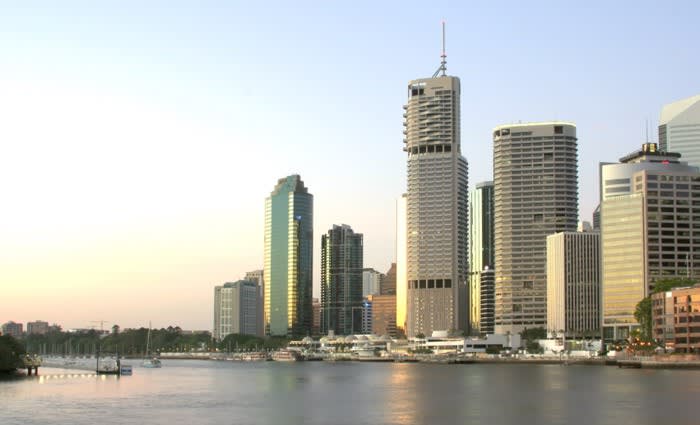Combustible cladding banned on all new Queensland buildings
Combustible cladding is set to be completely banned on all new Queensland buildings.
The Queensland Minister for Housing and Public Works Mick de Brenni proposed the new regulation as part of a two-pronged approach to provide a lifeline to the State’s certifiers caught up in a shrinking insurance market.
The combustible cladding ban would extend to all aluminium composite panels with a PE core of greater than 30 per cent, and it would restrict usage across all buildings in Queensland.
Mr de Brenni said the proposals would help to protect Queenslanders, but called on the Commonwealth Government to protect Australians and introduce an importation ban on all aluminium composite panels with a PE core.
“I’ve made numerous calls on the Commonwealth to ban this combustible cladding at the border, they can’t keep dodging this responsibility to the people of Australia,” Mr de Brenni said.
“This is an opportunity to both reduce risk and back Australian manufacturing jobs, to which Prime Minister Scott Morrison should be jumping at the chance.
“And again, I call on Minister Karen Andrews to urgently address the issue at a national level, as the retraction of the insurance market has to be rectified by the Federal Treasury."
The proposals discussed at yesterday's meeting include also requiring certifiers to declare that combustible cladding hasn’t been used, and that there hasn’t been any product substitution during the construction process.
The other key solution to help certifiers proposed by the Queensland Government during the industry meeting, was to allow certifiers to remain licensed while they are holding professional indemnity (PI) insurance featuring cladding related exclusions.
Mr de Brenni said the ban on combustible cladding paved the way for the Queensland Government to allow certifiers to hold PI insurance with exclusions.
“By banning combustible cladding on new construction in Queensland, it means there doesn’t need to be an expense for certifiers in the form of exclusion free insurance,” Mr de Brenni said.
“However, allowing insurance with exclusions is a time-limited solution that provides the industry with immediate confidence to continue operating.
“These proposals are designed to ensure that jobs growth in Queensland doesn’t slow and construction industry practitioners continue to remain in the industry.
“We’ve already seen insurers attempting to cut and run from the market by withdrawing their insurance products and that means they escape their obligations, and that’s not on.
“This has put at risk hundreds of thousands of jobs in the sector and it’s got the potential to impact homeowners who would be left holding the can if they have to pursue litigation with dodgy buildings.
“Certifiers provide a level of protection for homeowners and we need to keep them in the industry.
“It means that as of today, the 400 licensed certifiers in Queensland will continue to be able to work tomorrow, and that means our record on job creation will continue, however subject to stringent conditions.
“The restrictions are part of the immediate term resolution of the issues to be followed by a suite of longer term system reform approaches including continuing to pursue a national ban on the importation of dodgy cladding.
“Prime Minister Morrison has a chance here to help rebuild confidence in the industry and back in local manufacturing jobs by banning dodgy cladding that fails community standards, but in the meantime we will have to impose extra requirements on the sector.”
Yesterday's proposals followed a number of weeks’ discussion with industry leaders on solutions to the certifier insurance issue.
A PricewaterhouseCoopers report released by the Palaszczuk Government yesterday shines a light on the effects caused by the deregulation of the Australian construction industry.
“Building industry professionals, from architects, to engineers and building certifiers, plus developers, play a pivotal role in ensuring that the built environment is safe and fit-for-purpose."
Mr de Brenni said PwC’s analysis showed the issue was not limited to Queensland, but a national issue affecting the building industry in all states and territories.
“Queensland has continued to work with industry on this issue,” he said. “I am committed to ensuring the viability of Queensland’s building and construction industry and am invested in ensuring the most appropriate and considered approach is taken to this situation.
“Queensland has led the way on behalf of the Building Ministers’ Forum for permanent labelling of aluminium composite panels, reducing the issues found through investigations around product substitution.
“But whilst Queensland leads the nation with building industry reforms, there is still more work to be done.”
